SUMMARY
This is AI generated summarization, which may have errors. For context, always refer to the full article.
It has been almost 40 years since the assassination of opposition leader Benigno “Ninoy” Aquino Jr. Today, I look back and share my personal story, my way of remembering.
This is not to be overly dramatic about it but August 21, 1983 capsized my life. I am sure I am among many who were deeply affected by the killing of Ninoy, as he was popularly called.
On the watch of a dictator, this murder under a blazing afternoon sun, so public, unleashed a storm of emotions in me: shock, anger and grief. It planted a deep unsettling feeling in my heart – and propelled me into a kind of journalism I hadn’t done before: political reporting.
I was in my 20s, writing special reports for Business Day, a business newspaper, and my work focused on following the financial health of corporations and industries. It reached a point where I memorized the synonyms for increase and decrease – as in profits climbed or earnings dipped, profits leaped, losses dwindled, and more. It was ho-hum work.
A few years out of college, I joined Business Day which was known for its independence and rigorous training of aspiring journalists. Martial Law was in full swing and Raul Locsin, our publisher, kept the newspaper away from the censors’ pens. The view from Malacañang then was that ours was a small publication with a limited market. Their attention was on the national dailies – there were no online news publications – and the broadcast media.
Soon after Ninoy Aquino was shot in the airport tarmac as he descended from the airplane, Locsin called us all to a meeting. The air in the newsroom was heavy with anticipation and uncertainty.
He announced that, for the first time in its 16-year history, Business Day was going to open a political section. It was momentous and there seemed to be a ripple of excitement about venturing into a new frontier.
“We can no longer just report on business and the economy,” I remember Locsin telling us. The effects of Ninoy Aquino’s killing were going to spill into Ayala Avenue, boardrooms, offices, the streets, and universities. The newspaper needed to widen its lens and chronicle the politics of the times.
Indeed, the three years that would follow would be highly turbulent, leading to a denouement in 1986, the end of 14 years of a dictatorship.
At the editorial meeting, I remember raising my hand, volunteering to report for the political section. Something had stirred in me, adrenaline coursing through my veins. I wanted so much to be on the frontlines, to feel the pulse and witness the goings-on in the aftermath of the assassination – a form of involvement that fit a journalist.
Without losing a beat, I covered the so-called parliament of the streets and followed its organizers into their endless meetings, in their homes and offices. I went where my nose led me: wherever I sniffed leads for stories. These brought me to the formidable military camps, where reformist soldiers were planning a coup d’etat, and to the mountains, the lair of communist insurgents and Muslim rebels.
Fortunately, my editors trusted me and gave me a lot of leeway. All they required of me was to keep them informed of my clandestine trips to the political underground and the safety measures I had to take.
It was in writing these news reports on the insurgencies that I had to navigate carefully. We were not supposed to be critical of Marcos, the First Lady and the military. And I wasn’t to give any clues on where these armed rebels were. I stuck to factual reporting, with as much detail as possible, keeping the tone sober.
What worked for us was that Business Day’s political section seemed to be outside the radar of Malacañang. This gave us the confidence to pursue stories deemed sensitive, including the quiet organizing among some anti-Marcos military officers.
The editors then assigned me to the Batasang Pambansa, Marcos’s rubber-stamp parliament, but with an opposition that was finding its voice. It was in these halls that I got my exposure to the workings of the legislature and met and talked to officials of the Marcos government as well.
As journalists, we were expected to remain neutral. But this was a time when it was tough to be uninvolved. What I kept in mind was Locsin’s reminder. There are three tenets to live by, he often said: accuracy, accuracy, accuracy. From this would flow fairness and honesty in reporting.
Three years of reporting on the aftermath of the Aquino assassination gave me an education on Philippine politics that I wouldn’t have gotten from books. The ringside view was valuable, the people I met from a wide spectrum of the political rainbow provided part of my education. I realized I had so much to learn from others, teaching me humility.
These experiences sharpened my curiosity and enriched my empathy and understanding, values needed in journalism.
As I look back on my growth as a person and as a journalist, I have come to the conclusion that our lives are not shaped merely by what we aspire for and the personal choices we make. Events beyond our control, external to our lives, like wars and disasters, define us. In my case, it was the Aquino assassination.
Add a comment
How does this make you feel?

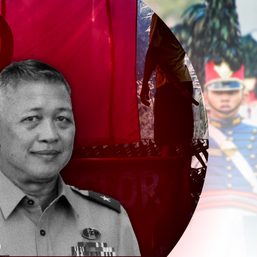
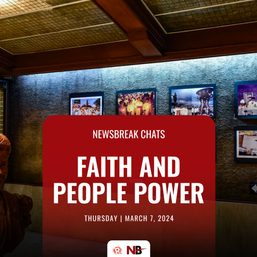
![[Bodymind] Forgiveness, Enrile, and Bongbong Marcos Jr.](https://www.rappler.com/tachyon/2024/03/forgiveness-enrile-bongbong-march-6-2024.jpg?resize=257%2C257&crop=411px%2C0px%2C1080px%2C1080px)
![[Vantage Point] Father and daughter caught in a vise of geopolitics](https://www.rappler.com/tachyon/2024/03/tl-father-daughter-geopolitics.jpg?resize=257%2C257&crop_strategy=attention)
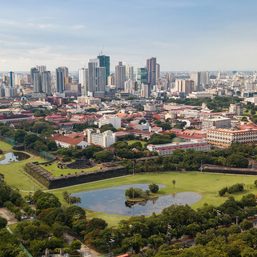
![[Rappler’s Best] Patricia Evangelista](https://www.rappler.com/tachyon/2024/04/unnamed-9-1.jpg?resize=257%2C257&crop=486px%2C0px%2C1333px%2C1333px)
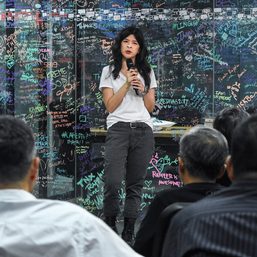
![[Be The Good] Talking AI between ridge and reef](https://www.rappler.com/tachyon/2024/04/Talking-AI-between-ridge-and-reef.jpg?resize=257%2C257&crop=270px%2C0px%2C720px%2C720px)
![[EDITORIAL] Filipino journalists to China: Yes, we are trouble](https://www.rappler.com/tachyon/2024/04/animated-wps-march-tension-2024-carousel.jpg?resize=257%2C257&crop_strategy=attention)
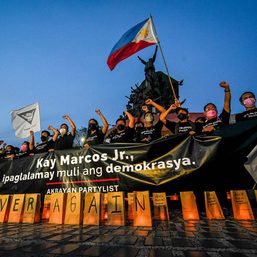
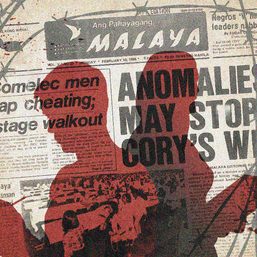
![[Newspoint] Hitting rock bottom](https://www.rappler.com/tachyon/2023/12/Newspoint-hitting-rock-bottom-December-2-2023.jpg?resize=257%2C257&crop=283px%2C0px%2C720px%2C720px)
![[Newspoint] The Ninoy constituency](https://www.rappler.com/tachyon/2023/08/TL-Ninoy-constituency-August-25-2023.jpg?resize=257%2C257&crop=334px%2C0px%2C720px%2C720px)
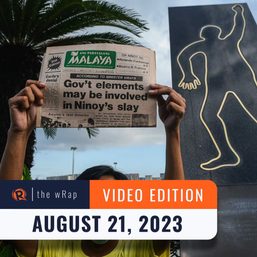
There are no comments yet. Add your comment to start the conversation.